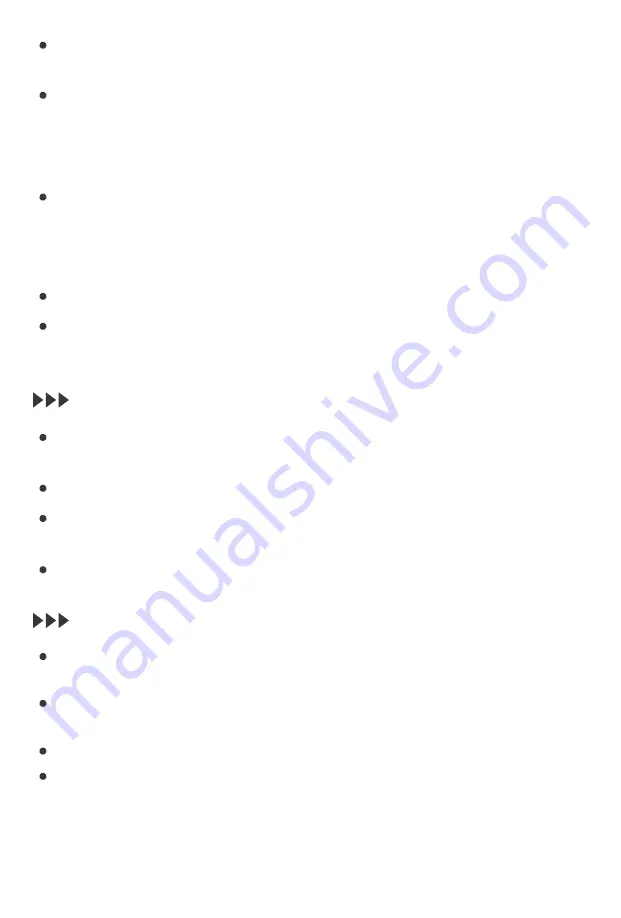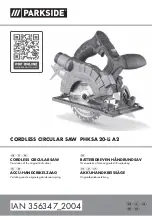
For the material with a curved surface, it is best to use a narrow saw
blade.
Sawing along the cutting line when sawing metal materials with a
coolant and lubricant. If necessary, before sawing, inspect and remove
foreign objects (nails, screws, etc.), chips from wood or particleboard,
building materials, etc.
Fix the material and
do not
hold it with your hands or feet. Use the
product to saw through the material. If the saw blade is stuck when
sawing, turn off the product immediately, use a suitable tool to enlarge
the gap and pull the saw blade out.
Do not
touch other objects or floors with a running saw.
After finishing sawing the material, turn off the product. It can only be
put down after the product completely stops working.
The plunge cutting can only be used on soft materials, such as wood,
aerated concrete, plaster and gypsum board.
Place the saw blade on the material before turning on the product.
Saw the material at a certain angle, slowly move the saw to a vertical
position and continue to saw along the cutting line.
Turn off the product and remove the material after the work is done.
The metal cutting saw blade can be used to saw objects protruding
from the wall (for example, water pipes, metal bars, etc.).
Place the saw blade directly against the wall and gently bend it against
the wall.
Place the saw on the material and turn on the product.
When using the product, keep the material under constant pressure.
2. Plunge Cutting
3. Flush Sawing
Summary of Contents for JC-303
Page 1: ...Model No JC 303...
































